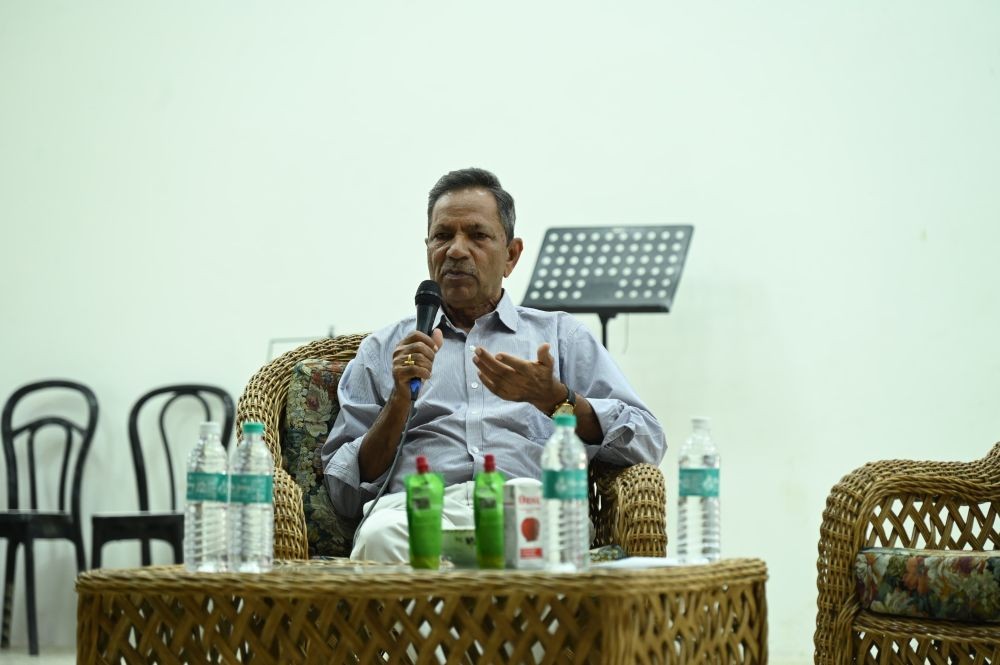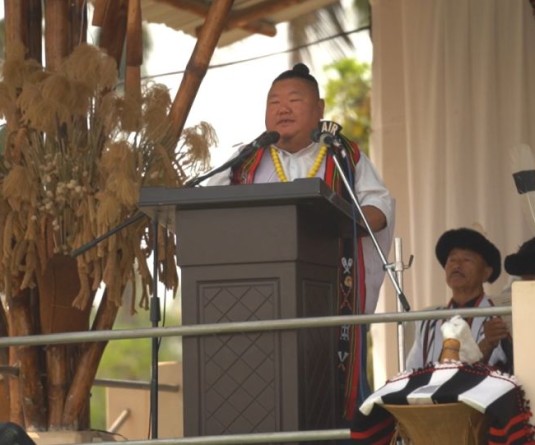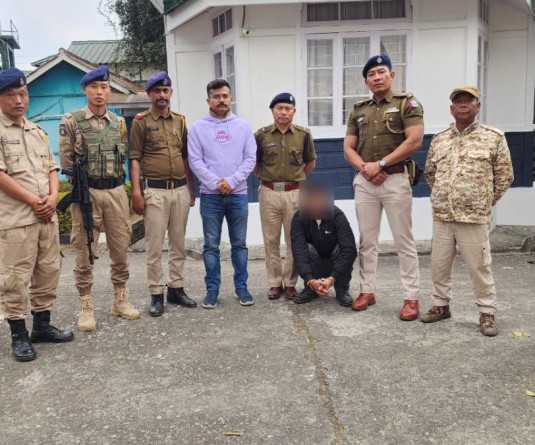Prof. G.V.C. Naidu, former Founding Chairperson of the Centre for Indo-Pacific Studies at Jawaharlal Nehru University, New Delhi, speaks on the evolving dynamics of India-China relations at Patkai Christian College on April 24.

Patkai, April 27 (MExN): Patkai Christian College’s Department of Political Science hosted a lecture on the evolving dynamics of India-China relations amid shifting global and regional orders on April 24 at the Bundrock Chapel-Auditorium.
Prof. G.V.C. Naidu, former Founding Chairperson of the Centre for Indo-Pacific Studies at Jawaharlal Nehru University, New Delhi, addressed a packed auditorium of students, faculty and guests, describing the India-China relationship as a subject of “evergreen relevance” in a rapidly transforming world order.
“The United States has long been the most dominant geopolitical force, but global power is shifting,” Naidu said. “Today, China has risen as the world’s second-largest economy — something few anticipated happening so swiftly. And India is not far behind, emerging steadily as a major global player.”
Highlighting the strategic importance of the Indo-Pacific region, Naidu remarked that the area has re-emerged as a vital hub of economic and political activity. “The Indian Ocean has re-emerged as a hub of economic and political activity,” he said, stressing the region’s growing geopolitical weight.
Reflecting on the historical trajectory of India-China relations, Naidu noted that the two civilizations have shared nearly 2,000 years of largely peaceful engagement. “Apart from the 1962 war, which was rooted in complex historical and territorial issues including British colonial legacies and the Dalai Lama’s flight to India, our relationship has been predominantly cooperative,” he said.
Urging policymakers and scholars to adopt a broader strategic perspective, Naidu emphasized the importance of compartmentalizing political disagreements from economic cooperation. “Regional and global dynamics must guide our approach. There’s a pressing need to compartmentalize political disagreements from economic cooperation if both countries are to thrive and contribute to global stability,” he added.
The event opened with a welcome address from Dr. Zhoto Tunyi, Head of the Department of Political Science, who underlined the urgency and relevance of the topic in today’s geopolitical climate.
The session concluded with a lively Q&A segment moderated by Assistant Professor A.G. Samuel. Dr. Yanbeni Kikon, Assistant Professor and event coordinator, delivered the vote of thanks. The program was organized by the Department of Political Science, with support from the college’s Mass Communication department.






